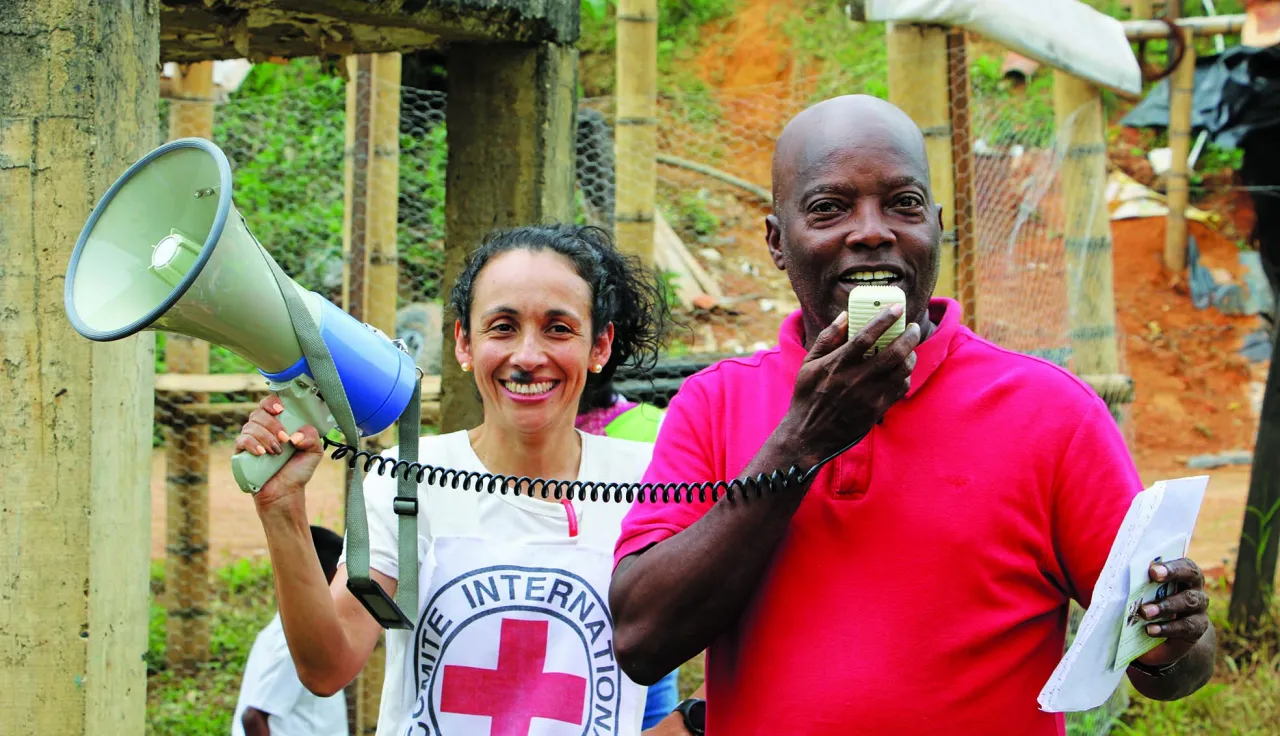Colombia - Calls to action

To state and non-state armed actors
As the fighting intensifies, armed actors must protect civilians and those who no longer take part in the hostilities. International humanitarian law must be respected by the parties to the conflict, without exception.
The principles of distinction, proportionality and precaution must be respected at all times and in all places. We call on armed actors to comply, in particular, with the principle of precaution, which requires parties to a conflict to take all feasible precautions to avoid or minimize harm to the civilian population and civilian property when planning and executing military operations.
People who do not or no longer participate in the hostilities must be treated humanely. Homicide and threatening to commit homicide are absolutely prohibited. In addition, under no circumstances should civilians be stigmatized.
Children must be kept out of the hostilities completely. The recruitment, use and participation of children in hostilities are violations of humanitarian law. Such acts irreparably harm not only the lives and dignity of the children, but also those of their families and communities.
All forms of sexual violence are absolutely prohibited by humanitarian law and must be eradicated, both as a mechanism of intimidation and as a strategy for the recruitment, use and participation of children in armed conflict.
Protection must be afforded to health-care workers at all times, and to wounded or sick people, even if they ar armed actors. Ambulances and other forms of transport to evacuate wounded or sick people must be allowed to travel, regardless of which party they belong to. Likewise, the transfer and delivery of essential medical supplies must be allowed. As hostilities escalate, protecting those who provide care ensures that humanity prevails amid violence.
In this situation, it is essential that the bodies of the people who are killed, including those of armed actors, are properly handled and identified, so they don't become missing people. All parties must ensure that families receive information about what has happened to their loved ones and where they are.
We reiterate to armed actors, both state and non-state, that the presence, use and abandonment of explosive hazards have devastating consequences, from which they must protect civilians. We also urge them to consider the impact of these weapons on communities, especially in places that are essential for children, such as schools and playgrounds.
It is important to remember that respect for humanitarian law is not dependent on the existence of peace negotiations. Nor should it be understood as being open to negotiation. Compliance with humanitarian law is mandatory, and when confrontation intensifies, it becomes more important than ever.
We urge the parties to the conflict to adopt special agreements and/or unilateral declarations to extend and
strengthen respect for and implementation of humanitarian law. These agreements should show a clear commitment to protect people who are not or are no longer taking part in the hostilities.
To state entities:
Due to the rapidly deteriorating humanitarian situation, we call on the state to respond promptly to the needs of the people affected by the consequences of the armed conflicts. This includes allocating adequate resources for this response. A timely response can ensure the survival of entire communities affected by armed conflict. In addition, we urge the state to activate and ensure the
proper functioning of prevention pathways and to implement measures to mitigate the risks that civilians face.
We urge the state to strengthen support mechanisms for people whose mental health is affected by the armed conflicts, such as teachers and health workers who do their jobs in the midst of hostilities.
We call on the authorities to ensure that pathways are in place to prevent the recruitment, use and participation of children in hostilities, and to improve access to education as a way to mitigate the risk.
We urge the state to guarantee that they will allocate the resources needed to implement public policy relating to the search for missing people and support for their families. This policy includes strengthening the national search system (including the medicolegal system) and giving victims/survivors a role in the design and implementation of the national public policy for missing people.
We urge the state to establish an alternative mechanism, which is extrajudicial and humanitarian, for searching for people who have gone missing since 2 December 2016.
The state must urgently adopt measures to prevent the bodies of people killed in the armed conflicts from disappearing. It is essential to ensure proper custody and traceability of both unidentified and unclaimed bodies that are buried by the state.
We remind the state of the importance of making progress on its National Preventive Mechanism, established under the Optional Protocol to the United Nations Convention against Torture. We also hope to see the state approve protocols for inter-institutional cooperation in crisis situations in penitentiary centres and in cases of people deprived of their liberty who have illnesses that make them unfit to serve a prison sentence.



